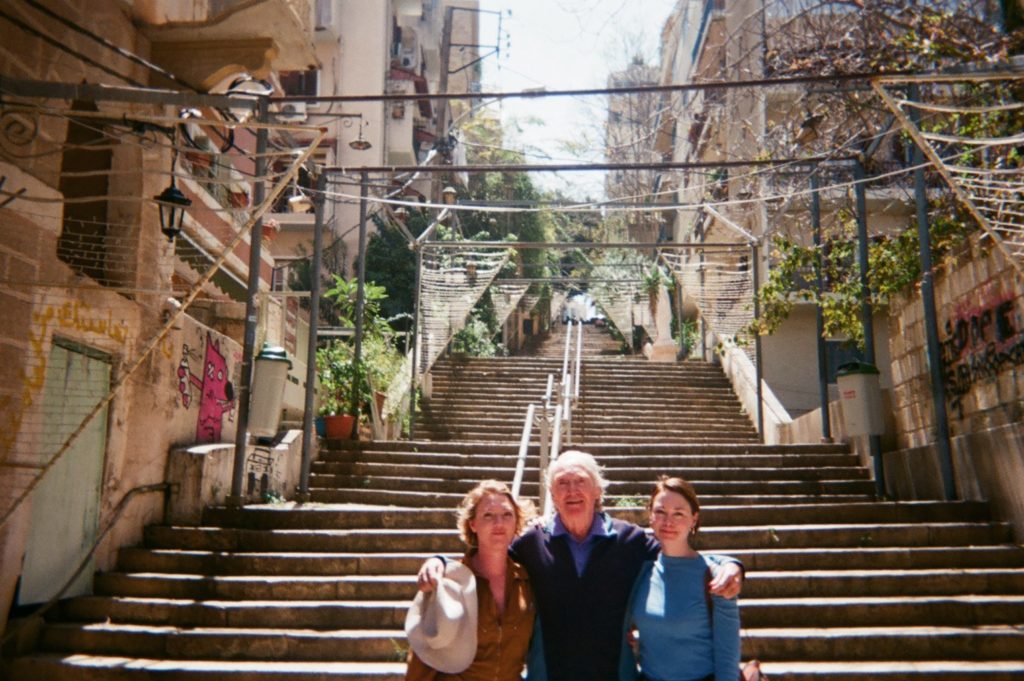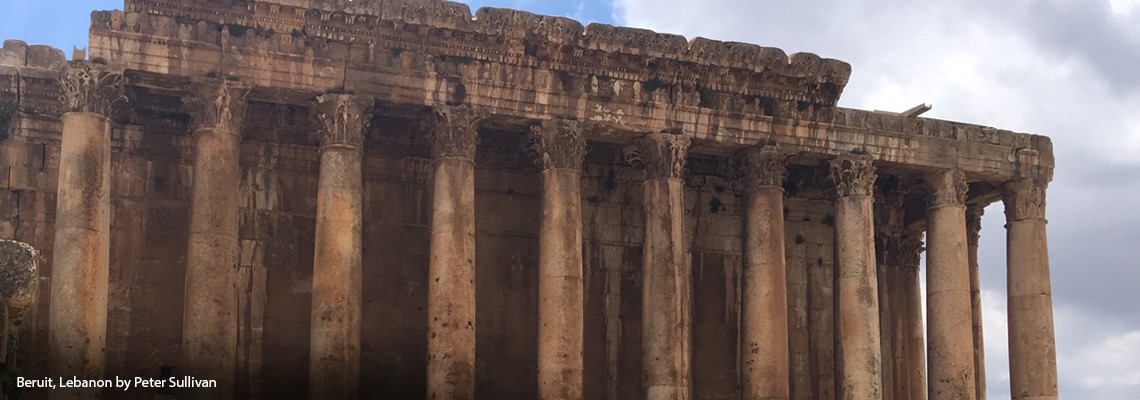The Joy of Beirut
Peter Sullivan recently celebrated a milestone birthday with his daughters in Beirut. He shares some interesting insights about his trip with us in the following article.
Before going to Beirut to celebrate my 70th birthday with my daughters, I met Lebanon’s Ambassador to South Africa. He asked what I knew of his country. “Not a lot” I confessed.
“It is smaller than the Kruger Park. Sea and beach one side, then mountains, then a valley, then higher mountains for skiing. On small west side, Israel border. All around rest of country, Syria. “You will feel you are in the Western Cape. Wine estates, green, lovely valley, mountains.”
His Excellency Ambassador Frangieh was right. And wrong. It always felt foreign. Small things get you. Don’t use tap water, pump it out of a 50-litre big bottle. Remove shoes when entering home. Car parked by Valet Service, always. Like our car guards, and a bit like the mafia: they park your car, nobody else will. Costs a few dollars. Soiled toilet paper in a bin, not the loo. Sewage pipes too small to accommodate paper, so you have a poo-paper bin in the toilet. Be careful, the kettle kicks off the electricity. (So did the shower, leaving me in darkness, naked and dripping, groping for where the towel might be.)
Welcome to Beirut.
Congested streets. Upmarket cars jostle for space, Mercedes, Audi, Maserati. More Porsches than in Sandton. Outside our fashionable restaurant at lunch are parked Maserati, Lamborghini, Bentley, Porsche, all in a row.
The economy is in trouble, I’m told. Doesn’t look like it at lunch or in the traffic. At the Yacht Club sleek ocean cruisers are lined up, decks baubled with tell-tale white bulbs containing the latest — expensive — communications technology. Oddly, no yacht masts at the Yacht Club, only motor cruisers.
Even more odd is that most of Lebanon’s population do not live in Lebanon. Some 6,1 million people live in the state, 2 million are Syrians and mostly refugees, 450,000 are Palestinians. But 8 million Lebanese live in Brazil. Go figure. Beirut’s population is 2 million, a third of the country’s total.
GDP is $88bn. Growth about 1.5% annually. Last census done: 1932. Huh?
Yep, the constitution is based on 1932 figures. Nobody wants another census because it would mean a revision of the constitution. The Constitution insists on a Maronite Christian as President, the Prime Minister must be a Sunni Muslim, and the Speaker of Parliament a Shia. All based on the 1932 census.
But what’s it like to visit, you may ask.
Wonderful. Fascinating. Friendly people, like South Africans. Everyone wants you to love the country. The food is fabulous. Restaurants and coffee shops and bars everywhere, you want to visit them all.
Quick tourist wins are visiting the oldest continually inhabited town on the planet (Byblos, about 9,000-years-old) a bit like Kalk Bay, enjoyed great calamari in a Pepe’s restaurant overlooking the tiny harbour; great trip up a cable car and funicular to the top of a mountain at Joudia for splendid views across the Mediterranean; then a day-long visit to the greatest Roman ruins in the world. Huge ten-story high columns still standing holding up massive stone masonry, the whole complex about the size of Sun City, took several hours to see and we only saw a bit. Absolutely mind-boggling. The Romans moved from Beirut inland to Baalbek and built these spectacular temples to their gods.

My best was when we hired a car and drove two hours to the Cedar Forest, snow still on the ground, and from there to the Bekaa Valley, where I wandered bird-watching in the wetland until I saw the magical sight of large soaring birds, slowly gathering height in a thermal just before noon, soaring around in lazy circles, going higher and higher until storks and cranes look small from the ground, then they shoot off to Europe. Once the most dangerous place on the planet with jets bombing and firing rockets in Middle East squabbling, the Bekaa Valley remains the major flyway for large migrating birds. High mountains funnel the birds from Africa to Europe, then back again six months later. Seeing 120 White Storks and a score of Cranes gaining height then flying off is a sight to be treasured.
All in all a delightful way to turn 70, get to my 70th country, and have some time with daughters who have migrated far from home and are unlikely to find their way back except for brief replenishment. If that sounds sad, it is not: it is a great joy to see them soar, happy and free on a thermal of their own making, a wind from hard work that lifts them up to a view of all the vast world with its endless exciting opportunities for them to enjoy and explore.
Life is fabulous.

